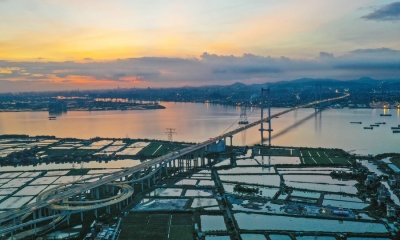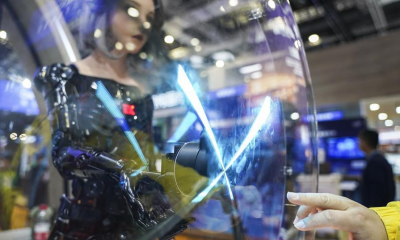Shaping the Future Together
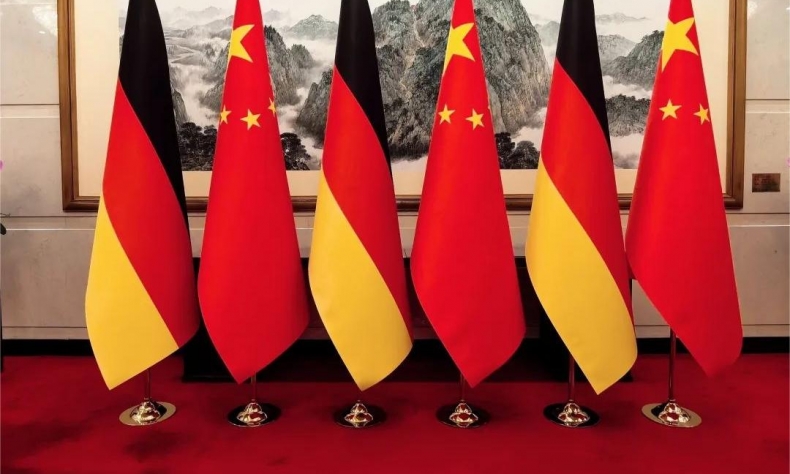
Chancellor Scholz’s trip to China has stabilized economic relations between the two countries.
A series of beautiful and harmonious images showed Chinese President Xi Jinping and German Chancellor Olaf Scholz strolling across a classic stone bridge and through an idyllic garden in the State Guesthouse in Beijing on April 16. The two leaders are said to have spent more than three hours together. They had lunch and a tea ceremony.
Are these impressions representative of the trusting rapprochement between German and Chinese positions and interests in the current world situation? President Xi said that there is no fundamental conflict of interests between China and Germany. They are not a threat to each other. This was certainly formulated with a view to the fact that Germany is under pressure from transatlantic geopolitical factors to take a tougher stance against China. He went on to say that it is all the more important for both sides to underpin the stability and vitality of their bilateral relationship, to be independent, and to pursue their mutual interests, especially as the world becomes more turbulent.
Whatever else the Chancellor said publicly, he was very impressed by China’s development achievements and the close and healthy cooperation between German and Chinese enterprises. Olaf Scholz may have communicated different positions on how to resolve the Ukraine conflict. In the end, however, the argument of seeking a peaceful solution and not adding fuel to the fire prevailed.
A short time later, the meeting with Chinese Premier Li Qiang focused on the main topics of the visit. Scholz had brought with him a large business delegation. Economic contacts between the two countries form the strong foundation of the overall relationship. Accordingly, Scholz had spent the last two days on a program aimed primarily at strengthening economic cooperation.
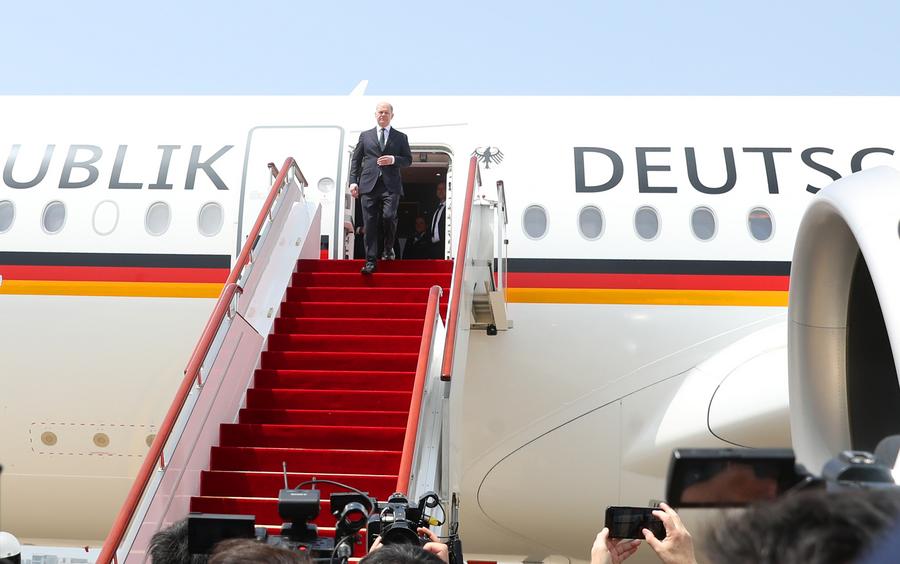
The day before, the German Chancellor spoke to the press in front of the breathtaking backdrop of the Shanghai skyline. He was familiar with Shanghai, the gateway to the world, from previous visits during his time as mayor of the twin city of Hamburg. He spoke of shaping the future through technological research and economic success. German companies are all over the city and he wants to help them stay.
A short time later, the Chinese government’s statistics office released China’s first-quarter growth figures. At 5.3 percent, it had even exceeded forecasts. The German chancellor could only be wishing for the same. Germany’s economy is under pressure. The sanctions against Russia, especially against cheap energy exports, are forcing Germany to source more expensive substitutes from other parts of the world. Increased production costs are holding back much-needed business investment. Many of them are going to China. German companies see a much brighter future there than at home.
With his visit to China, Scholz is responding to the expectations of many German business associations that he will fight for a level playing field for German companies in China. One such association is the German Chamber of Commerce in China. Its latest survey of more than 560 member companies at the end of January this year found that more than 90 percent of German companies want to continue their engagement in China. Nearly 80 percent expect stable growth over the next five years. The Chancellor is well aware that economic relations with China are a lifeline for Germany. That is why he rejects “protectionist motives” and focuses on cooperation on an equal footing.
This could be seen as an insinuation against the ideologues in the EU bureaucracy. They want to politicize European-Chinese trade and have recently launched several trade policy investigations into possible competition-distorting subsidies. The term “derisking”, with which EU Commissioner Ursula von der Leyen has become known, hardly plays a role for Scholz. After all, it is abundantly clear that markets and supply chains are so closely intertwined that it would be tantamount to cutting off vital supply arteries. Shortly before Scholz’s departure, the German press prominently reported that Germany’s dependence on critical raw materials from China had remained the same, if not increased. Researchers at the German Institute for Economic Studies had shown that Germany could not decouple itself from China, especially in the case of chemicals, electronics, and minerals. In addition, it is hardly possible to control all supply risks and supplier networks for complex machines consisting of thousands of components.
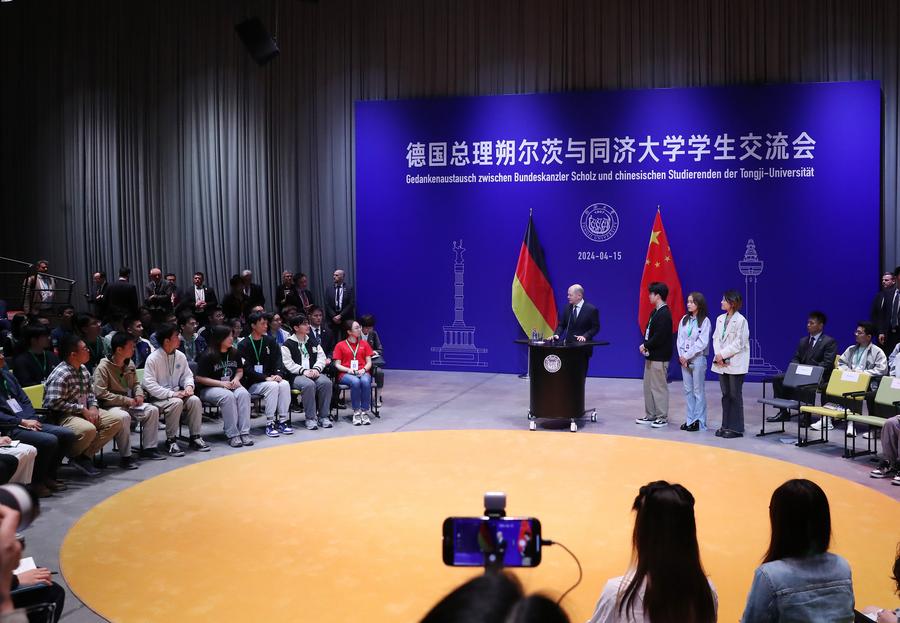
At Scholz’s meeting with some 160 students from Shanghai’s Tongji University, which was founded by a German doctor, the Chancellor appeared almost cheerfully relaxed. The students treat him with respect and enthusiasm. This certainly has something to do with the positive image most Chinese have of Germany. Of its poets, engineers and inventors. But most of all because of its renowned automotive industry, which has been closely linked to China for decades. Scholz has been quoted as saying that Chinese cars are welcome in Germany. He responded to critics by saying that many had claimed that Japanese and Korean cars would also dominate the German market. “That is nonsense. There are now Japanese cars in Germany and German cars in Japan, and the same goes for China and Germany.”
The Chinese public paid great attention to the German delegation’s visit. There were even dedicated Germany sections in leading dailies. The desire for a return to normality in China-Germany relations is omnipresent. The kind of normality that prevailed before the Covid-19 pandemic and before parts of the German political elite adopted more Anglo-American security positions with their new “China strategy”. It is to be hoped that this exchange will have a lasting positive impact on bilateral relations.
German Economy Minister Robert Habeck will also be visiting China from June 17 to 21, or two months later. In addition to Hangzhou and Beijing, he will, like Scholz, also visit the gateway to the world, Shanghai. His ministry was once vehemently committed to a critical view of China and a policy of decoupling. His decision to leave German companies to deal with the costs of rising energy prices and the consequences of the pandemic has been blamed for much of Germany’s economic difficulties. It remains to be seen whether this will reduce the positive results of the Chancellor’s trip. German companies in China will hopefully not be deterred by this headwind and will continue their promising cooperation in China. In any case, the Chancellor has provided a clear impetus to strengthen and advance Sino-German relations.
The author is a web-journalist and a researcher at Schiller Institute in Germany.
The article reflects the author’s opinions, and not necessarily the views of China Focus.
Copyedited by: Bai Shi and Niu Huiying
 Facebook
Facebook
 Twitter
Twitter
 Linkedin
Linkedin
 Google +
Google +




